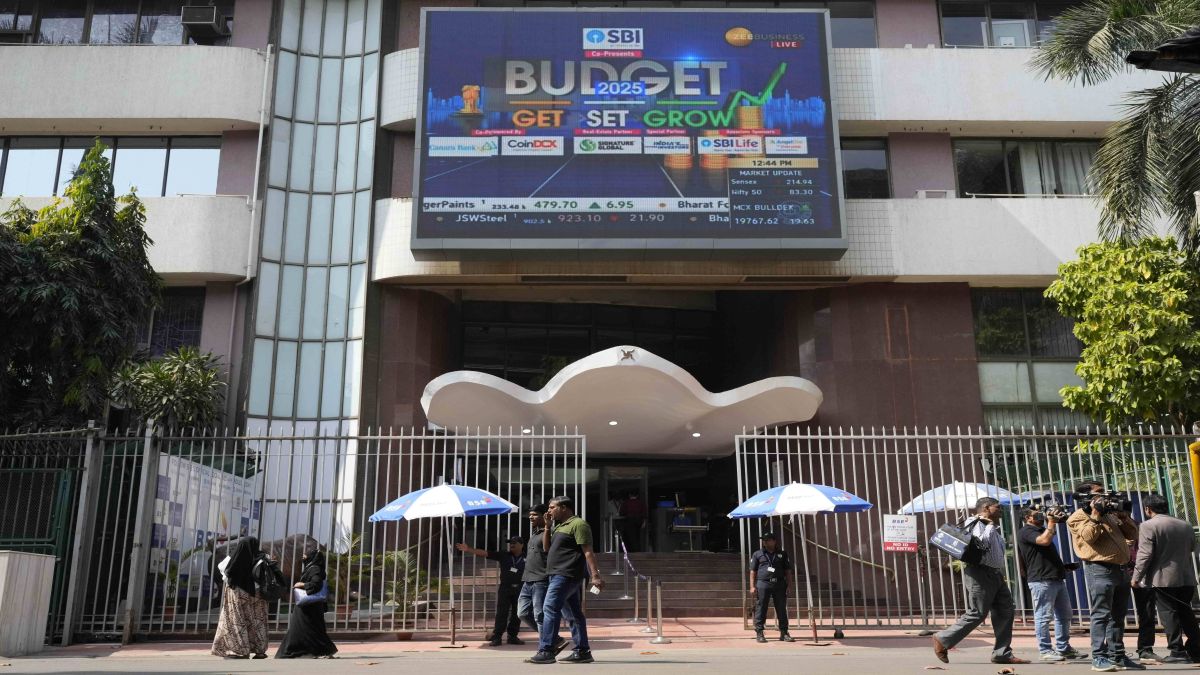“It’s a people’s budget. This Budget is a force multiplier. This Budget will increase savings, investment, consumption and growth,” said Prime Minister Narendra Modi shortly after Finance Minister Nirmala Sitharaman unveiled Union Budget 2025-2026.
The big highlight of today’s budget was the relief to the middle-class salaried people as it announced changes to income tax slabs , ensuring that individuals earning up to Rs 12 lakh will not have to pay any income tax.
But there are many questions that have cropped up after Finance Minister Nirmala Sitharaman delivered her 74-minute budget Speech .
Are you left confused on how Union Budget 2025 will improve your life? Do you want a clearer understanding of the new tax slabs suggested in the new tax regime? Should you swap out the old tax regime for the new?
Catch the live updates from Union Budget 2025
What are the changes to the tax slabs in the new tax regime?
In Budget 2025, Finance Minister Nirmala Sitharaman has announced changes to the tax slabs in the new regime . A salaried individual will pay zero tax for annual income up to Rs 4 lakh. In the Rs 4 lakh - to Rs 8 lakh bracket, five per cent income tax will be applied. This rate would rise to 10 per cent in the Rs 8 lakh - Rs 12 lakh bracket. The tax rates for the brackets of Rs 12 lakh-Rs 16 lakh, Rs 16 lakh-Rs 20 lakh and Rs 20 lakh-Rs 24 lakh are 15 per cent, 20 per cent and 25 per cent, respectively.
How does it compare to previous tax slabs in the new regime?
Earlier, the zero tax ceiling was for those who had an annual income up to Rs 3 lakh. Individuals who earned an income of Rs 3,00,0001 to Rs 7,00,000 were taxed five per cent. Annual income of Rs 7,00,001 to Rs 10,00,000 attracted a tax of 10 per cent, while those earning Rs 10,00,001 to 12,00,000 were taxed 15 per cent.
Individuals earning an income of Rs 12,00,001 to Rs 15,00,000 had to pay 20 per cent tax and any income above Rs 15,00,000 was taxed 30 per cent.
Will you get more money in hand after tax changes? How much?
The rejig to the tax slabs will benefit the common man.
A tax payer in the new regime with an income of Rs 12 lakh will get a benefit of Rs 80,000 in tax. A person having income of Rs 18 lakh will get a benefit of Rs 70,000 in tax. Those who make over Rs 25 lakh in a year will now be saving Rs 1.1 lakh.
What is the standard deduction in the old tax regime?
A standard deduction of Rs 50,000 is available in old regime.
How much income of Rs 12 lakh a year be taxed?
Any individual earlier was required to pay a tax of Rs 80,000 (in the new regime) for an income of Rs 12 lakhs. Now, he/she will be required to pay zero tax on such income.
How much will you be taxed for income more than Rs 50 lakh?
If an individual earns more than Rs 50 lakh, there are huge benefits. An individual earning Rs 50 lakh per annum, will now be paying income tax of Rs 10,80,000 as per the revised slabs, Rs 1,10,000 less than what he currently pays.
Should one switch from old tax regime to new tax regime?
The decision on switching from old to new regime will depend on the individual’s income and the exemptions he/she can claim. For instance, if your income is Rs 16 lakh and you show exemptions of Rs 4 lakh, your taxable income will be Rs 12 lakh. Now, according to the old tax regime slabs, you would pay a total income tax of Rs 1,77,500 — Rs 57,000 more than what you will pay under the new regime.
Is the government scrapping the old tax regime?
The old tax regime still continues and people can still opt for it. In a post-budget press conference, Finance Minister Nirmala Sitharaman said, “I would have said it (in the Budget speech) if that was the case”, when asked if the old regime was being phased out.
Tuhin Kanta Pandey, the finance secretary, added: “With the current tax slab relief announced in Budget 2025, the government expects almost everyone to move to the New Tax Regime, even though it is not being phased out just yet.”
How many people will benefit from the change in tax slabs?
Presently, for 2024-25, about 8.75 crore persons have filed their ITRs. All such assessees who were paying tax in the new tax regime will benefit from the change in rates and slabs.
How much money will taxpayer get owing to changes in tax slabs?
Approximately Rs 1 lakh crore will be made available in the hands of the taxpayers by virtue of changes in slab, rates and rebate.
Will you have to file Income Tax returns even if tax liability is zero?
Despite your tax liability being zero, meaning you don’t have to pay any tax, one has to file their income tax returns. Akhil Chandna, partner, Grant Thornton Bharat, told Hindustan Times, “As per provisions under the Income-tax Act, the tax return filing obligation arises based on Income level and not on actual tax liability payable. Even where the tax liability is NIL on account of rebate or various deductions, the taxpayer is required to file a tax return with NIL tax liability.”
Does Budget 2025 have any benefits for senior citizens?
The government has proposed to double the limit for TDS (tax deducted at source) on interest income for senior citizens to Rs 1 lakh. Finance Minister Nirmala Sitharaman has also proposed to increase the annual limit of Rs 2.40 lakh for TDS on rent to Rs 6 lakh.
With inputs from agencies


)

)
)
)
)
)
)
)
)



